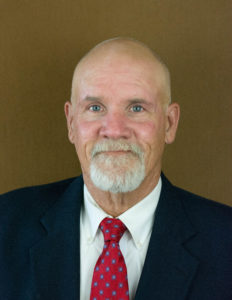As I have alluded to before, I’ve seen and heard of some horrible accidents. I’ve delivered death messages and even experienced one delivered to myself and my family. Such traumatic moments summon to mind related terms—PTSD, often associated with military action, being one of these.
Unfortunately we, in our industry, encounter this issue more frequently than we would like to admit. The bottom line is that it is a very real issue when this transpires.
In our industry, the “Suck it up, buttercup” sentiment is fairly pervasive in our industry, simply due to our reputation as a rough and tough industry to work in.
Regardless of perceived or self perceived toughness that any one individual may have, we all are human. Some individuals may be able to hide their feelings better than others. However, not any one individual gets accustomed to losing a coworker or a loved one.
Usually at some point, I hear, “Well, it was a freak accident!” To which I retort, “Most accidents are; I’ve not heard of a planned accident, except on TV shows.”
The main thought that I am attempting to drive home is that when a bad accident occurs, there is grief! And it is not just the family that suffers the loss.
Coworkers—who usually spend more waking moments working with the person that has passed than the family does—feels loss and has guilt associated with the loss and the guilt that they survived.
The mind starts conjuring the “What if?” thoughts, and the “Why me?” thoughts. Guilt, hurt, sorrow—all start going through survivor’s heads.
Now that I’ve tried to encapsulate the issues, the gist of this piece is that survivor’s remorse is very real. The survivors, directly involved and indirectly involved, need professional help as well.
Although safety works tirelessly to create a safe environment, there is also guilt associated with failure. For instance, guilt expressed as, “What could we have done better to prevent a fatality?” The governing entities, meanwhile, add pressure when they apply their followup to find out how it could have been prevented, as well as to find gaps in processes, procedures, and documentation. After all, that is their job and our job as well—to prevent recurrence.
Workers in the safety function—just like families, just like friends—often ask the “why” question, the “how” question and the “What could we have done better?” question. The stark realities are that we never thought it would happen, we tried, we’ve trained, we’ve learned.
People still take risks. People justify it by saying it was a calculated risk. Risk is just that, risk. Every time we pull out on a highway, there is risk. All the safety, engineers, improvements, laws, experiences—and the list keeps on going—all these exist and there are still risks and fatalities.
Meanwhile there are survivors, families, loved ones that still ask “Why?”
So I contend we must always remain diligent and resolve to improve. But the “Why my loved one”” “Why my friend?” “Why my co-worker?” and “Why did I survive?”—these go unaddressed.
I cannot emphasize enough of how important it is to seek help and assistance after a loss, to get counseling from your pastor, a psychologist, another friend.
Survivors remorse is real. Pride usually gets in the way. Counseling is encouraged. Those that suffer from such a loss can sometimes find themselves led to another loss. We lose 22 veterans a day due to some sort of survivor’s remorse. It’s not exclusive to the military.
If you are struggling…seek professional help.
As always, it’s not how many hits you have in baseball. It’s how many times you reach home safely that counts. —Dust
Dusty Roach is a safety professional based in Midland. He is also a public speaker on subjects of leadership and safety, and he maintains a personal website at dustyroach.com.










